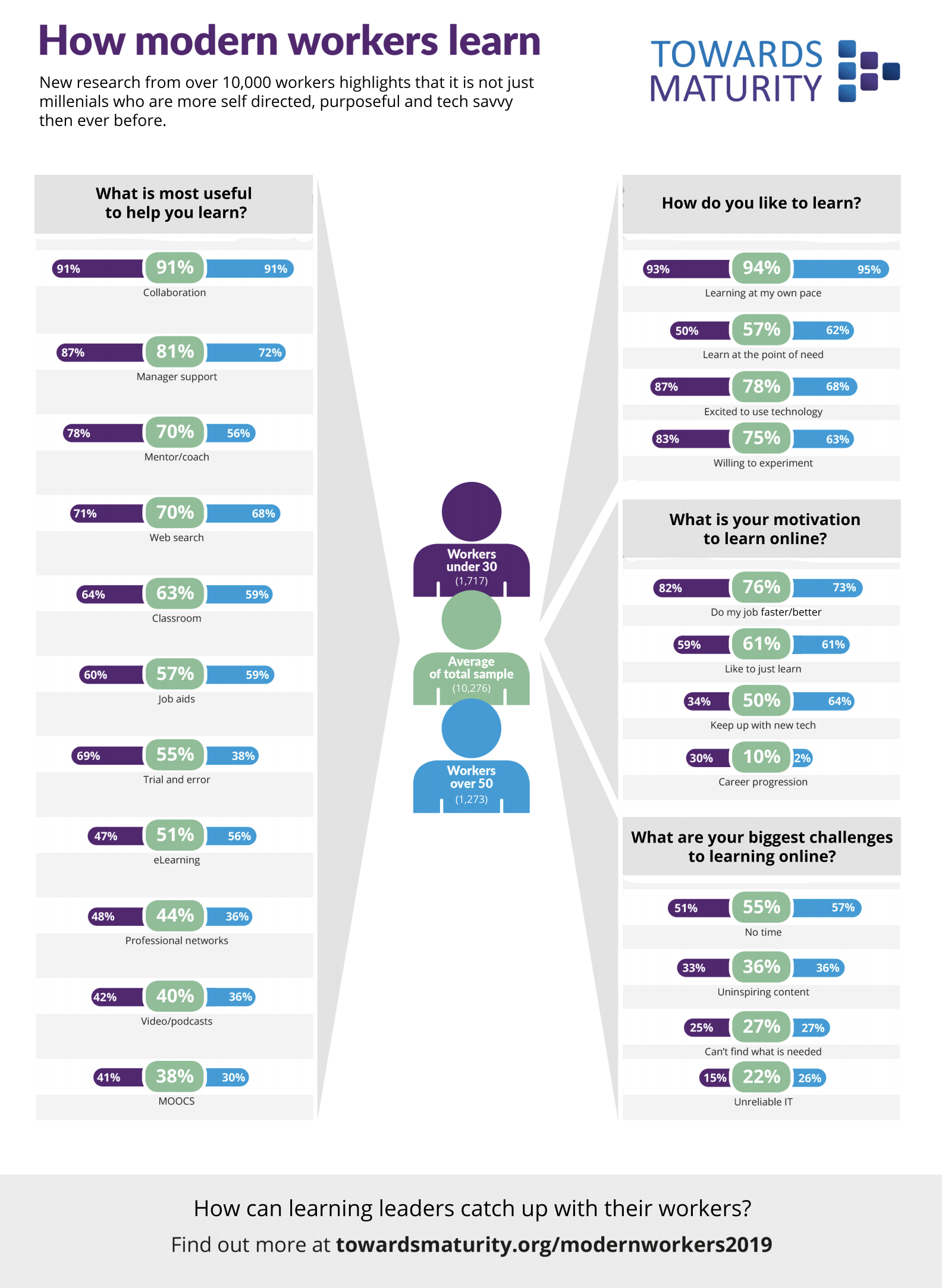
Challenging business assumptions about how workers learn
New evidence from 10,000 workers dispel the myths that business leaders have about how they learn in the modern workplace
Modern workers continue to grow as autonomous and self-directed learners, new research from Towards Maturity announces today.
Insights from a sample of over 10,000 workers who have taken part in the Towards Maturity Learner Intelligence programme between 2017 and 2018 have been further analysed to uncover the approaches, challenges and barriers they have to learning what they need to do their jobs in today’s economy.
Previous analysis had already shown that personal connection is vital for modern workplace learning with 91% believing collaboration, 70% mentoring and coaching and 81% management support are either essential or very useful to learn how to do their job. New insights show that this reliance is increasing over the years rather than decreasing. What is more collaboration with team members is rated equally by 9 out of 10 of those aged under 30 and those aged over 50. Mentoring and management support remains important as workers age, dispelling the myth that millennial workers are fundamentally different.
Workers are also becoming more autonomous with 7 out of 10 turning to web search, 3 in 5 using online job aids and half rating e-learning programmes as useful in learning what they need. Older workers are as inclined as their younger peers, if not more so, to use online tools to get better at their job.
Download the full infographic, How Modern Workers Learn
Commenting on the results, Laura Overton, CEO and founder of Towards Maturity said, “This research dispels the myths that many business leaders hold about how modern workers learn. 78% of workers are excited to use technology to network and learn from each other, with 6 out of 10 wanting to genuinely learn at the speed of need. However, many business leaders hold dear to the fact that workers want to learn in the classroom and that shapes the demands they place on their L&D teams.”
The evidence holds some challenges for L&D leaders as they go about their day to day business, with a third of young and older workers being put off by uninspiring content and 3 in 10 unable to find what they need. 87% of L&D leaders around the globe are providing staff with online learning and 74% producing job aids to support performance, yet nearly two thirds do not believe that their workers are motivated to connect.
Gent Ahmetaj, the Towards Maturity senior research analyst behind their Learner Intelligence programme says, “Today’s workers have a strong opinion on what works for them. A third are looking for more digestible information, with a quarter wanting timely and relevant information. When only 28% of L&D leaders are proactive in working directly with their learners to understand what works for them and how, they are missing out on an important source of intelligence to shape their learning offering of the future.”
Towards Maturity, the benchmark partner for the Learning Technologies events, is launching these new insights at Online Educa Berlin where academics, learning providers and practitioners are meeting together to help shape the future of learning.


